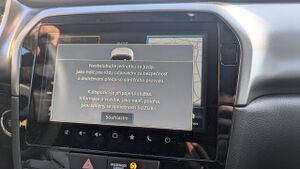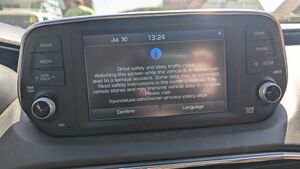Excessive data collection by cars
⚠️ Article status notice: This Article's Relevance Is Under Review
This article has been flagged for questionable relevance. Its connection to the systemic consumer protection issues outlined in the Mission statement and Moderator Guidelines isn't clear.
If you believe this notice has been placed in error, or once you have made the required improvements, please visit the Moderators' noticeboard or the #appeals channel on our Discord server: Join Here.
To justify the relevance of this article:
- Provide evidence demonstrating how the issue reflects broader consumer exploitation (e.g., systemic patterns, recurring incidents, or related company policies).
- Link the problem to modern forms of consumer protection concerns, such as privacy violations, barriers to repair, or ownership rights.
If you believe this notice has been placed in error, or once you have made the required improvements, please visit either the Moderator's noticeboard, or the #appeals channel on our Discord server: Join Here.
❗Article Status Notice: This Article is a stub
This article is underdeveloped, and needs additional work to meet the wiki's Content Guidelines and be in line with our Mission Statement for comprehensive coverage of consumer protection issues. Learn more ▼
Car producers are forcing drivers to agree to invasive spying by locking them out of some car features until they comply.
Background
[edit | edit source]New cars with "smart" panels are forcing drivers to agree every time they start their car to sharing their information. If driver do not click Agree button panel is not usable, locking driver out of some features of car. There is no other option then to agree.


Consumer response
[edit | edit source]- Drivers in EU have right to request the data car producers collected on them.
References
[edit | edit source]
